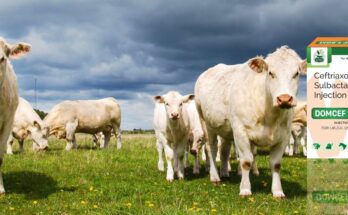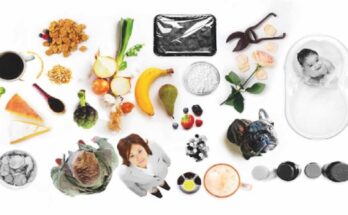Have you ever stopped to think about the impact of your sanitary pad on the environment or your health? Traditional hygienic pads are often made with synthetic materials and chemicals, raising concerns about personal well-being and environmental sustainability. This is where natural plant-based sanitary pads come in. But are they the right choice for you? Let’s dive deep into this eco-friendly option and find out.
What Are Natural Plant-Based Sanitary Pads?
Natural plant-based sanitary pads are menstrual products crafted from biodegradable and renewable plant-derived materials like organic cotton, bamboo, and cornstarch. Unlike traditional pads, they avoid synthetic materials and chemicals, offering a gentler option for your skin and the environment.
These pads function just like regular pads but prioritize eco-friendliness and sustainability. They decompose faster and contribute less to environmental pollution, so choosing them means making a healthier choice for your body and the planet.
Key Benefits of Plant-Based Sanitary Pads
Switching to plant-based pads offers numerous advantages, from skin-friendly to environmentally responsible. Their hypoallergenic properties reduce irritation caused by synthetic materials and fragrances. Being biodegradable, they minimise waste and landfill contributions, aligning with sustainable living practices.
Eco-friendly XL sanitary pads are free from harmful chemicals like chlorine and dyes, making them safer for intimate use. Additionally, their softness and breathability enhance comfort during use. For those seeking eco-conscious menstrual care, these pads provide a guilt-free solution.
Comparing Plant-Based Pads to Traditional Pads
Plant-based pads stand out for their health and environmental benefits compared to conventional pads. Traditional pads often contain plastic, synthetic fibers, and chemicals that can irritate the skin and harm the planet. In contrast, plant-based pads are free of harsh additives, making them ideal for sensitive skin.
While traditional pads can take centuries to decompose, plant-based options break down in just months. Although they may cost more upfront, their long-term benefits for health and sustainability outweigh the price difference.
The Environmental Impact of Conventional Pads
Conventional sanitary pads are a significant contributor to environmental waste. Made predominantly of plastic, each pad can decompose 500-800 years. With billions of pads discarded annually, the environmental toll is staggering. Production processes for these pads also rely heavily on non-renewable resources, increasing their carbon footprint.
Plant-based pads, by contrast, use sustainable materials that decompose naturally, reducing waste and pollution. Switching to these alternatives is a small change that creates a significant environmental impact.
Are Plant-Based Pads Suitable for Heavy Flow?
Plant-based pads are designed to accommodate varying menstrual needs, including heavy flow. Many brands incorporate absorbent materials like bamboo fiber or organic cotton, ensuring reliable protection. However, choosing the right absorbency level for your flow is essential.
Some users may find them less effective on hefty days than ultra-absorbent synthetic pads, but technological advancements have significantly improved their performance. Always check product reviews and specifications to ensure they meet your needs.
Understanding the Materials Used in Plant-Based Pads
Plant-based sanitary pads are crafted from natural and renewable materials like organic cotton, bamboo, and cornstarch. Organic cotton is soft, breathable, and free of harmful pesticides, making it gentle on the skin. Bamboo fiber is popular due to its antibacterial properties and exceptional absorbency.
Cornstarch or biodegradable plastics are often used as leak-proof layers without relying on conventional plastics. These thoughtfully chosen materials ensure that plant-based pads are safe for users and environmentally friendly.
Common Concerns About Plant-Based Pads
While plant-based pads are celebrated for their sustainability, some users have concerns. One common issue is the higher cost than traditional pads, as eco-friendly materials and processes are more expensive. Additionally, some worry about the absorbency of these pads, especially on heavy-flow days.
Availability can also be challenging, as plant-based options may not be as widely stocked in stores. Despite these drawbacks, their benefits often outweigh the challenges, particularly for those seeking healthier, eco-friendly menstrual care.
How to Transition to Plant-Based Pads Effortlessly
Switching to plant-based pads is easy. Start by identifying a brand that matches your flow needs and preferences. Gradually incorporate these pads into your routine alongside your current products to test their comfort and effectiveness. Educate yourself on proper disposal methods, as biodegradable pads require specific handling.
Buying in bulk can reduce costs over time. With some planning, transitioning to plant-based pads can be seamless and rewarding for you and the environment.
Are Plant-Based Pads Worth the Investment?
Plant-based sanitary pads may have a higher price tag, but their benefits often justify the cost. They are free from harmful chemicals, making them safer for your body. Their biodegradable nature significantly reduces environmental waste, aligning with sustainable living values.
Investing in such products over time contributes to a healthier planet for you and the earth. While the upfront cost might seem daunting, the long-term health and ecological advantages make them a worthy choice for conscious consumers.
Conclusion
Natural plant-based sanitary pads offer a sustainable and skin-friendly alternative to conventional options. Made from biodegradable and chemical-free materials, they are gentle on sensitive skin and reduce the environmental footprint. These pads are great for individuals looking to align their menstrual care with eco-conscious values.
However, factors like cost and availability might influence your decision. Ultimately, they provide a healthier, greener option for those seeking to impact personal health and the planet positively




